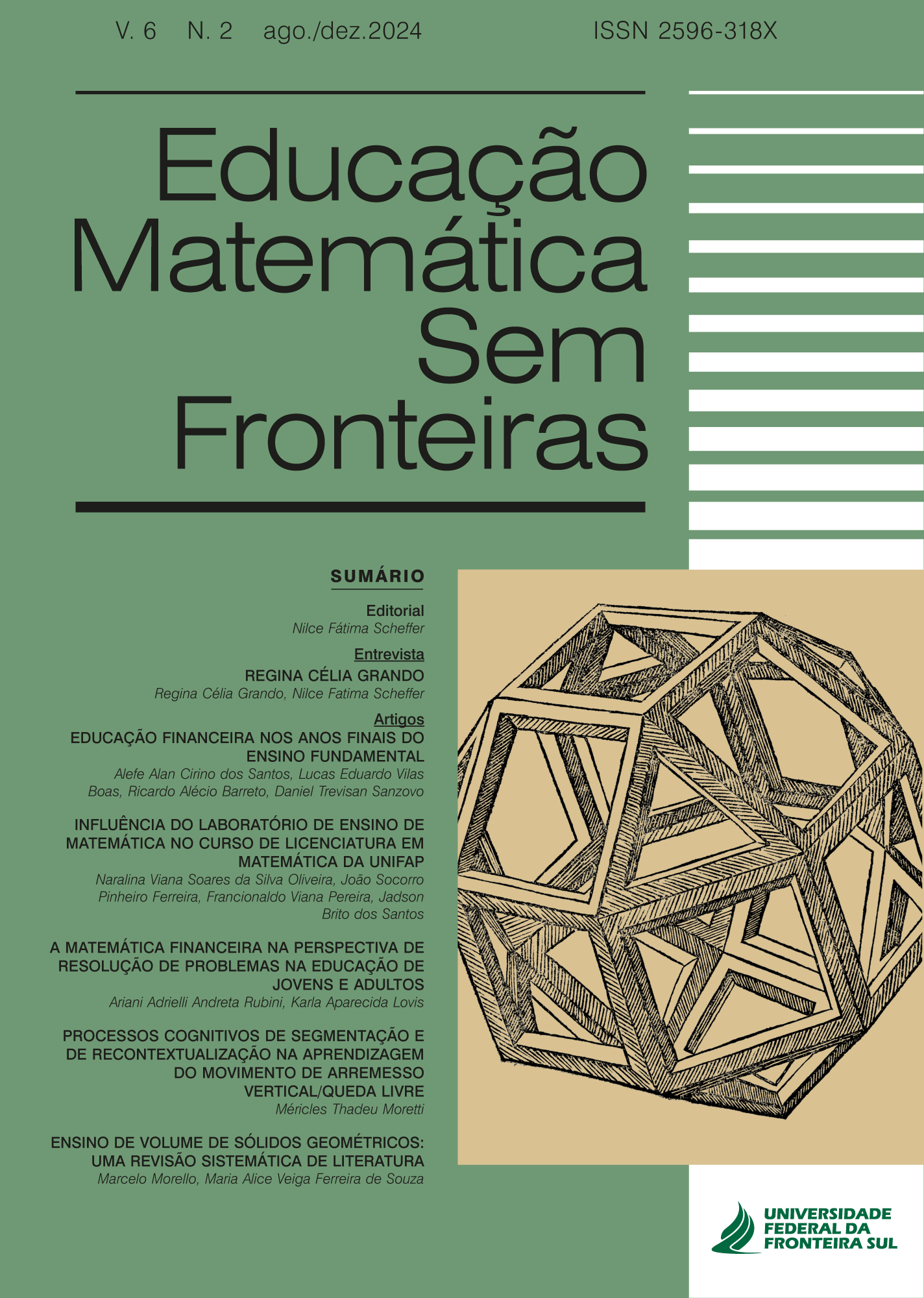INFLUENCE OF THE MATHEMATICS TEACHING LABORATORY ON THE DEGREE COURSE IN MATHEMATICS AT UNIFAP
DOI:
https://doi.org/10.36661/2596-318X.2024v6n2.14846Keywords:
Mathematics Education, Mathematics Teaching Laboratory, Pedagogical Practices, Teacher TrainingAbstract
Mastery of mathematical content is not a sufficient condition for the teacher to promote the teaching and learning process. The Mathematics Teaching Laboratory plays a fundamental role in the initial training of mathematics teachers, functioning as a space that transcends the traditional classroom. In it, future educators have the opportunity to experience innovative pedagogical practices, explore different teaching methodologies and interact directly with concrete and technological resources that enhance the learning process. The present work aims to carry out a historical review of the Mathematics Teaching Laboratory (LEM) linked to the Mathematics Teaching Degree course at the Federal University of Amapá (UNIFAP), identifying the main contributions of the use of LEM for the initial training of mathematics teachers. The study uses a qualitative approach, developed in two stages: bibliographic research, considering the influential authors on the subject, and oral history research, through interviews, collecting testimonies from professors of the mathematics degree course at UNIFAP. It was possible to perceive that LEM has been used as an environment for experimentation, where academics test, create and recreate ways of teaching mathematics with different resources available in the LEM collection, contributing significantly to the initial training of mathematics teachers.
Downloads
Published
Issue
Section
License
Copyright (c) 2025 Educação Matemática Sem Fronteiras: Pesquisas em Educação Matemática

This work is licensed under a Creative Commons Attribution 4.0 International License.





